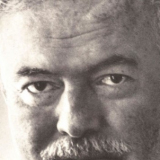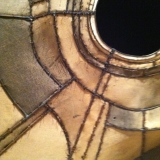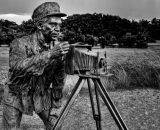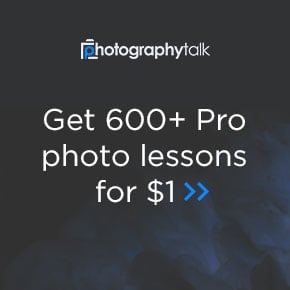- Forum
- Photography and Camera Forum
- Photo Galleries - For General Display or Critique
- Film Photography
- Do we need Film?
Do we need Film?
-
 Topic Author
Topic Author
- martinaconcha
- Newbie
- Followers: 0
- Posts: 8
-
Points:
130
Post #500678
Digital photography came to make our life easier.
Don't you think it will be dead soon? I mean, FILM.
-

- Screamin Scott
- Moderator
-
- Nikon D610, Nikon D7100, Nikon D300, Olympus OMD E-M5 MarkII, Olympus OM-D E-M10, Olympus Pen E-P3 + film SLR's
- Followers: 1384
- Posts: 6863
-
Points:
40205
Post #500680
-

- Hassner
- Super User
-
- Canon 40D 50D 60D 5DII Canon SX60HS
- Followers: 1406
- Posts: 22219
-
Points:
113585
-

- pegonperez
- New Kid On The Block
- Followers: 0
- Posts: 11
-
Points:
162
-

- effron
- Newbie
- Followers: 1623
-
Points:
129640
-
 Topic Author
Topic Author
- martinaconcha
- Newbie
- Followers: 0
- Posts: 8
-
Points:
130
Post #501371
-

- Stic
- Newbie
- Followers: 18
-
Points:
10150
-

- Chris Yates
- Lone Wolf
- Followers: 31
- Posts: 126
-
Points:
2382
Post #503210
Post #503228
I don't think film was any harder to learn to shoot than digital. It takes time if you develop/print your own. So does post processing digital images. The more you get good photos and don't need to process just to make corrections (whether in a wet or digital darkroom) the more efficiently you can use your time I think.
Developing your own film typically was just done with B&W film in a home darkroom. If someone worked for a camera store or lab, they would have processed film. Otherwise as a photographer the process with color film was - #1 drop it off at the store #2 go pick up the pictures! lol not too hard! Now it takes more time having to send out color film for developing.
You want to learn what all of what came from? If you want to learn more about film try http://www.filmphotogrphyproject.com .
Sharon
-

- effron
- Newbie
- Followers: 1623
-
Points:
129640
Post #504139
Why so serious?
-

- McBeth Photography
- Photo Guru
-
- Sinar Norma 4x5
- Followers: 365
- Posts: 3870
-
Points:
1295
Post #538213
Personally, I think that film will never go away, nor should it. there is just something about the process that slows me down..... makes me think, perhaps it is a meditation.
Film can be forgiving in the highlights where a digital sensor is not at all.
The bottom line is that it is just a different medium, or a different tool for the artist to select....some embrace it and a others do not, to each their own.
It is what it is.
-

- kuzenski
- New Kid On The Block
- Followers: 19
- Posts: 11
-
Points:
448
Post #629901
As to film/digital, it's easy for me: Before digital, when my wife directed a play, I'd shoot either 48 or 72 exposures during the show (320T for you other oldsters.) It isn't easy to get good photos during a live production, and I'd be happy to get a dozen or more decent shots, and a small handful of good shots for her portfolio.
Digital changed that; I could shoot 300 frames during one production and have dozens of excellent shots, because there were so many more shots to choose from. It was great, as far as getting good photos went. (I don't get many calls lately, mostly because people's cellphones get pretty good photos these days.)
But when I'm shooting for my own enjoyment, I use a camera that doesn't take batteries at all, and I shoot maybe three frames of 120 for a specific image. Two entirely different approaches to photography for two different purposes.
-

- fmw
- Newbie
- Followers: 12
-
Points:
12122
- Forum
- Photography and Camera Forum
- Photo Galleries - For General Display or Critique
- Film Photography
- Do we need Film?
Latest Reviews
The Olympus Pen E-P7 is an affordable micro four thirds mirrorless camera with 4K video capabilities, a 20.3MP sensor, and 121 focus points, making it a solid entry-level camera for beginners.
The Panasonic G9 II is a 25.2-megapixel micro four thirds camera with numerous features that make it punch out of its weight class, like 779 AF points, 5.8K video, and weather sealing.
The Fujifilm XT5 is a 40MP mirrorless camera capable of 6.2K video at 30p. With those specs, it’s an ideal choice for photographers needing a camera to pull double duty for imaging and video.
The Canon EOS R100 is an entry-level mirrorless camera introduced in 2023. But just because it’s an entry-level camera doesn’t mean it’s a bare-bones camera. Find out why in this review!
Latest Articles
The best photography jobs right now are a mix of tried-and-true gigs like wedding photography and new jobs highlighting AI’s capabilities, travel, and videography.
The Olympus Pen E-P7 is an affordable micro four thirds mirrorless camera with 4K video capabilities, a 20.3MP sensor, and 121 focus points, making it a solid entry-level camera for beginners.
Starting a photography business is one thing; sustaining your business over a long period of time is another. Use the tips in this professional photography guide to build something with longevity!
The Panasonic G9 II is a 25.2-megapixel micro four thirds camera with numerous features that make it punch out of its weight class, like 779 AF points, 5.8K video, and weather sealing.
Cinematic photography is an interesting genre that combines photographic and videographic skills along with effective storytelling techniques. The result? Highly impactful images!
Newborn photography requires skill, the right gear, and a lot of patience. This beginner’s guide discusses critical topics that will help you be more prepared for before, during, and after the shoot.
To fill the frame means to expand the footprint of the subject in your shot. Get in close, zoom in, crop the image, or use other techniques to bring the subject to the forefront.
With these simple yet effective beginner photography tips, you can avoid some of the common mistakes beginners make and get improved results with your images.


















